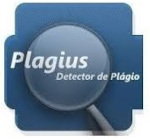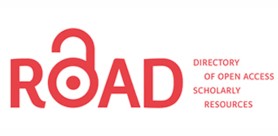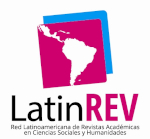OBSESSIVE-COMPULSIVE DISORDER IN GIFTED ADULTS
DOI:
https://doi.org/10.47180/omij.v6i1.365Keywords:
Obsessive-Compulsive Disorder, Giftedness, Neurosciences, Genomics, NeuropsychologyAbstract
Obsessive-Compulsive Disorder (OCD) is a chronic and cyclical neuropsychiatric condition that can manifest in a particular way in gifted individuals. This article explores the intricate relationship between giftedness and the recurrence or exacerbation of OCD symptoms in adulthood. Giftedness, characterized by high cognitive abilities, also confers specific vulnerabilities such as cortical hyperactivity, perfectionism, and mental overload, which can act as "neurological fertilizers" for the development or reactivation of OCD. The study addresses the neuropsychological and neurological bases of OCD's return, highlighting the role of brain circuits like the cortico-striatal-thalamo-cortical loop. Psychosocial, emotional, and cognitive factors that can reactivate the condition in gifted adults are discussed, including chronic stress, idealized goal failures, and cognitive overload. The article also analyzes the specificities of the gifted mind, such as high metacognitive awareness, logical rigor, and intolerance to errors, which can predispose to disguised mental obsessions. Finally, partial results from a genomic study investigating SNPs and genes related to OCD in individuals with different IQs are presented, suggesting a polygenic predisposition that requires further investigation.
Downloads
References
AMERICAN PSYCHOLOGICAL ASSOCIATION. DSM-5: Manual diagnóstico e estatístico de transtornos mentais. Porto Alegre, RS: Artmed, 2013.
ATHANASAKIS, S. et al. Neuroanatomical differences in the memory systems of intellectual giftedness and typical development. PMC, 8613411, 2014.
FERNANDES, P. A.; CARVALHO, M. R. Alterações Neurobiológicas a partir da Terapia Cognitivo-comportamental no Transtorno Obsessivo-compulsivo. Psicologia: Teoria e Pesquisa, v. 33, 2017. DOI: https://doi.org/10.1590/0102-3772e322215
GELLER, D. et al. Is juvenile obsessive-compulsive disorder a developmental subtype of the disorder? A review of the paediatric literature. J Am Acad Child Adolesc Psych, v. 37, p. 420-427, 1998. DOI: https://doi.org/10.1097/00004583-199804000-00020
HU, P. D. Giftedness and the experience of complex trauma. Dissertation submitted to the Faculty of Immaculata University, 2022.
MERCADANTE, M. T. et al. As bases neurobiológicas do transtorno obsessivo-compulsivo e da síndrome de Tourette. Jornal de Pediatria, v. 80, n. 2 Supl, p. S39-S46, 2004. DOI: https://doi.org/10.1590/S0021-75572004000300006
PECHOUS, L. M.; JOHNSON, L. Intellectual Giftedness and Psychopathology in Children and Adolescents: A Systematic Literature Review. ResearchGate, 2015. Disponível em: https://www.researchgate.net/publication/283170542_Intellectual_Giftedness_and_Psychopathology_in_Children_and_Adolescents_A_Systematic_Literature_Review. Acesso em: 09 jun. 2025.
POTENTIAL PLUS UK. Obsessive-compulsive disorder and high learning potential children. [S. l.]: Potential Plus UK, [s.d.]. Disponível em: https://potentialplusuk.org/wp-content/uploads/2018/04/F07-150121-Obsessive-Compulsive-Disorder-and-HLP-Children.pdf. Acesso em: 09 jun. 2025.
ROSARIO-CAMPOS, M. C. Transtorno obsessivo-compulsivo de início precoce e início tardio: características clínicas, psicopatológicas e de comorbidade. 1998. 99 f. Dissertação (Mestrado em Psiquiatria) – Faculdade de Medicina, Universidade de São Paulo, São Paulo, 1998.
STEENBERGEN-HU, S. How Can We Better Understand, Identify, and Support Highly Gifted and Profoundly Gifted Students? A Literature Review of the Psychological Development of Highly-Profoundly Gifted Individuals and Overexcitabilities. Scholars.Direct, 2015. Disponível em: https://scholars.direct/Articles/cognitive-science/acs-4-016.php. Acesso em: 10 jun. 2025.
UNIVATES, BDU. Características das pessoas com Transtorno Obsessivo Compulsivo: revisão da literatura. [S. l.]: Univates, [s.d.]. Disponível em: https://www.univates.br/bdu/items/b2d23321-3a78-49ec-81ba-13c68de17c8c. Acesso em: 10 jun. 2025.
WALITZA, S. Obsessive-compulsive disorders in DSM-5 – what is new? Psychiatric Clinics of North America, 2014. DOI: 10.1016/j.psc.2014.06.004. DOI: https://doi.org/10.1016/j.psc.2014.06.004
WEBB, J. T.; AMEND, E. R. Misdiagnosis and Dual Diagnosis of Gifted Children. SENGifted, [s.d.]. Disponível em: https://www.sengifted.org/post/misdiagnosis-and-dual-diagnosis-of-gifted-children. Acesso em: 11 jun. 2025.
Downloads
Published
How to Cite
Issue
Section
License
Copyright (c) 2025 Open Minds International Journal

This work is licensed under a Creative Commons Attribution-NonCommercial-NoDerivatives 4.0 International License.
The authors declare that any work submitted, if accepted, will not be published elsewhere, in English or in any other language, and even electronically, unless it expressly mentions that the work was originally published in the Journal.













